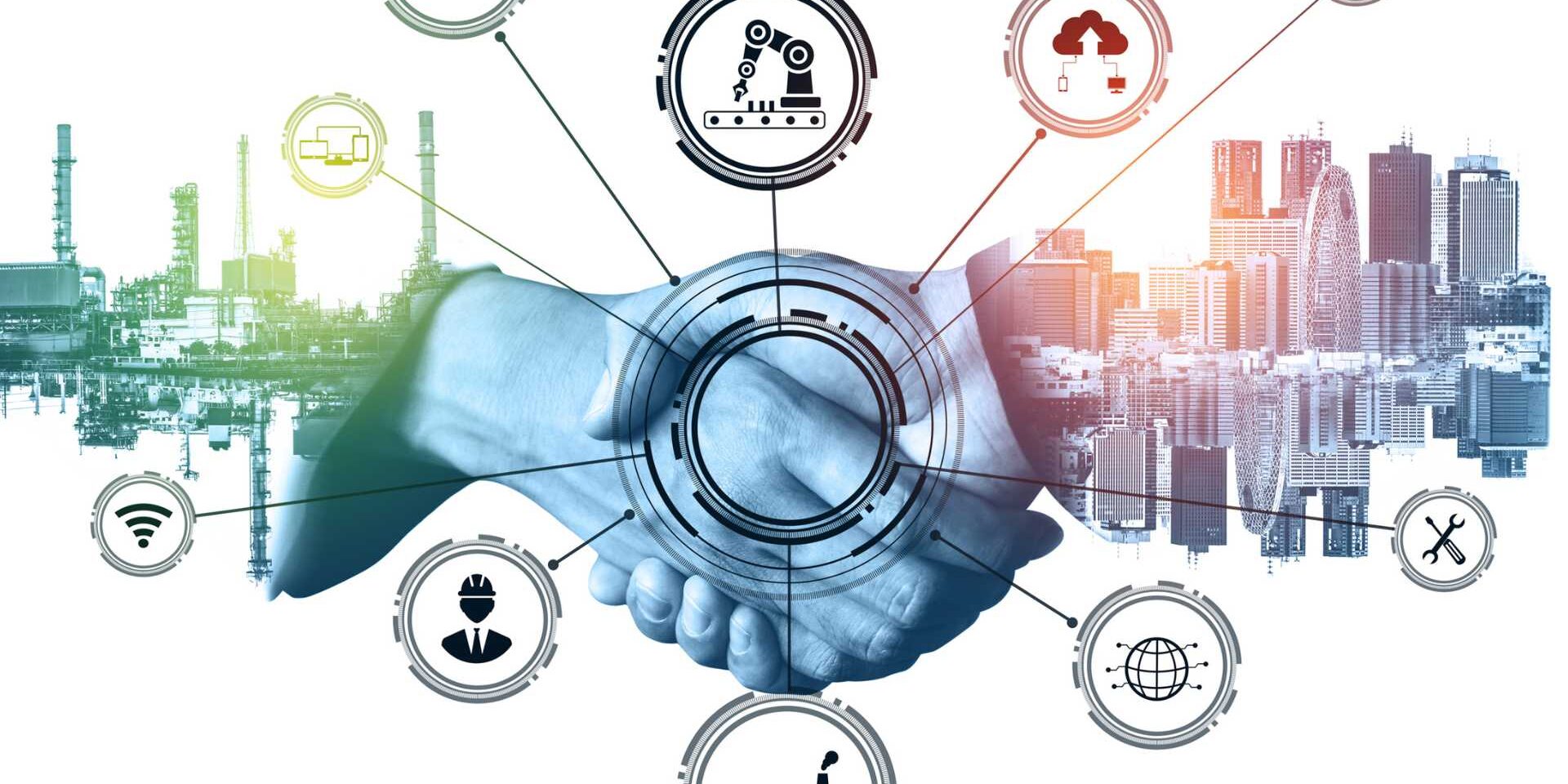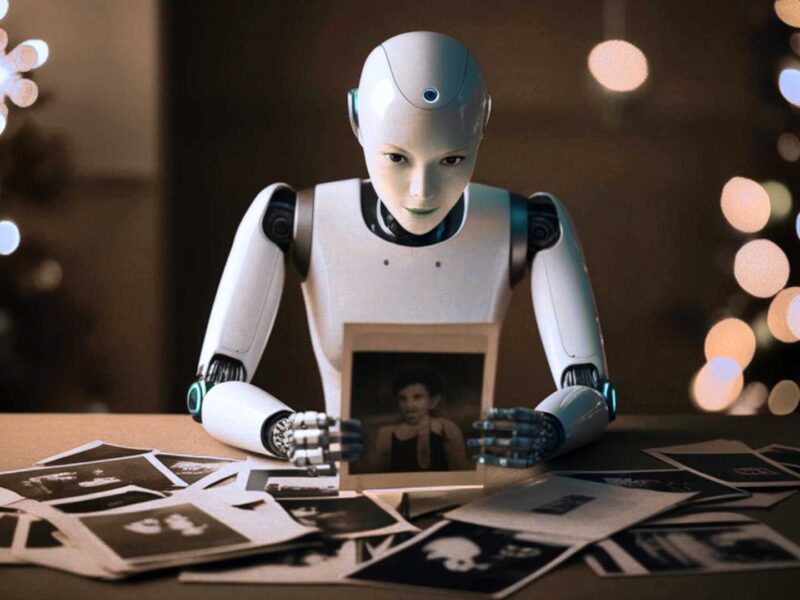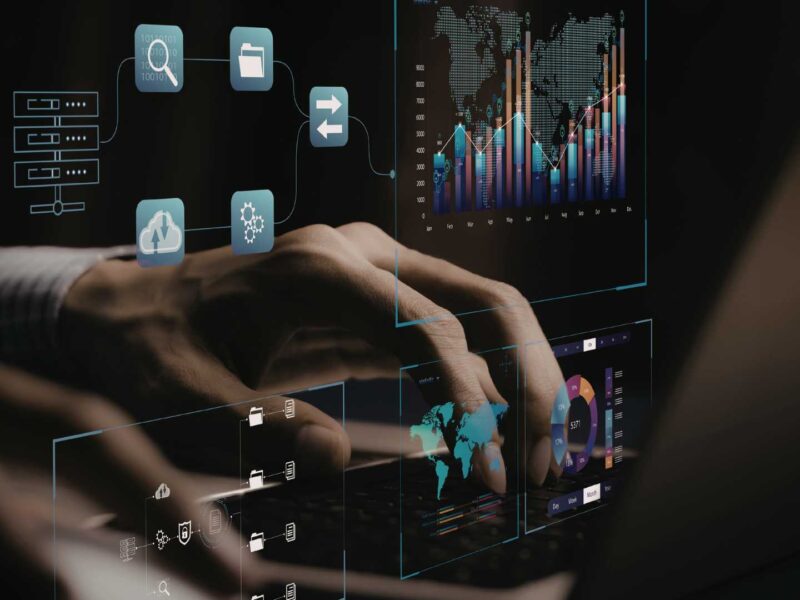The Green Tech Revolution: Must-Read Stories from Industry Pioneers
The narrative around AI and technology often highlights environmental concerns, like data centers’ high energy use, raising valid questions about digital sustainability.
However, a compelling shift is underway, driven by innovative solutions and a commitment to eco-conscious tech development.
This Techronicler article explores this sustainability challenge, spotlighting transformative stories that reduce environmental impact and drive positive change.
With insights from software engineers, product managers, CTOs, and sustainability experts, we uncover cutting-edge solutions and strategic shifts showing that technological progress and environmental responsibility are intertwined, paving the way for a greener future.
Read on!
Blockchain Brings Transparency to Diamonds
One of the most compelling tech-meets-sustainability stories is the development of SCS-007 Sustainability Rated Diamonds, the first third-party certified sustainability standard for diamonds.
Using blockchain-backed traceability, advanced lifecycle analysis, and rigorous climate neutrality benchmarks, SCS-007 tracks every stage of a diamond’s journey, from mine or lab to market, ensuring environmental and ethical integrity.
This not only brings unprecedented transparency to a historically opaque supply chain but also empowers consumers to make purchase decisions aligned with their values.
With sustainability increasingly driving consumer behavior, the application of tech-based verification in luxury goods signals a powerful shift in how industries can merge high-value craftsmanship with measurable climate responsibility.
Tariffs Force Strategic U.S. Recycling
A fundamental shift happening in the U.S. economy is affecting how we source, process, and recycle strategic metals like steel, aluminum, and copper.
The U.S. government has doubled the tariffs on imported steel, aluminum, and copper to 50%. These tariffs show that U.S. competition with other countries is heating up, especially with China, which controls much of the world’s rare earth elements and important metal supplies.
Companies like Apple are getting ready to spend hundreds of millions of dollars on U.S.-based supply chains and rare earth recycling facilities to protect themselves from global disruptions and price swings. Apple recently partnered with MP Materials to invest $500 million to boost U.S. production and recycling of rare earths.
Electronic waste recycling is becoming vital for recovering rare earth elements, plus large amounts of steel, aluminum, and copper from discarded computers, appliances, and vehicles.
The circular economy of metals is shifting from being just an environmental consideration to becoming a strategic sourcing and economic factor.
Tech Controls Color, Cuts Packaging Waste
Consumer Packaged Goods brand packaging! Print overall is in decline but the packaging print market is crazy booming, with tons of emerging brands launching (via TikTok etc.) and extravagant packaging designs.
What no one talks about is that this produces tons and tons and tons of waste due to misprints, mismatched colors, poor substrates etc.
Recent technology advances in spectrophotometry however enable printers and brands (and private labels) to manage colors during the print process better.
Our SpectroVision inline color measurement system with ChromaQA SaaS has therefore won the coveted industry award (2025 FTA Technical Innovation Award) in May this year. The technology allows measuring 3000 samples per second, finally allowing for color control on press, avoiding tons of waste in substrate and ink.
A real sustainability win that tends to go under the radar.

Martin Van Balkom
VP of Marketing, Techkon USA
AI Politeness Wastes Energy
One sustainability-centered tech story that recently resonated with me is how much energy it consumes by being polite on ChatGPT.
It mentioned that by using words like ‘please’ and ‘thank you’, while it helps us get polite responses back, we’re not being efficient with our usage.
Ever since reading this, I’ve been trying to use these types of words much more sparingly and only when necessary.

Samantha Brandon
Founder, Samantha Brandon LLC
Mindset Is Key To Climate Action
When we think of climate solutions, we usually focus on technology: solar panels, carbon capture, and electric cars.
But there’s an essential missing piece: One of our most powerful and overlooked tools is right here, our own minds.
The challenge is that our brains are wired to avoid frightening truths and shut down when things feel overwhelming. And climate change is full of these threats and risks. If we’re searching for rapidly scalable solutions, we need to understand and also work with that response.
Unless we also shift our thinking and support our feelings, there are obstacles to the large-scale change that we need for a safer, healthier world.
This isn’t a soft solution: It’s the tool that can unlock everything else.

Leslie Davenport
Climate Psychology Educator & Consultant, Climate Psychology Training Program
Electrification Decarbonizes Heavy Industry
One story that resonates is Stanley Black & Decker’s electrification of heavy machinery.
They launched battery-powered construction tools (e.g., concrete breakers, rotary hammers) that reduce CO₂e emissions by 60% during use compared to gas equivalents.
Their innovation extends to biodegradable lubricants, like a plant-based chainsaw oil preventing 20M+ gallons of petroleum pollution annually, and partnerships for high-energy battery recycling.
This matters because it proves industrial sectors can decarbonize without sacrificing performance. Gen Z’s demand for accountability and regulations like the EU Taxonomy make such tech critical.
We mirror this by using recycled alloys and AI-driven efficiency in our camlock production, showing sustainability isn’t just ethical, it’s operational genius.

Peter Xie
Co-Founder, ProCamLock
Seawater Tech Delivers Dual Climate Impact
As a founder of the Nature and Sustainability resource, I monitor the next-gen sustainability breakthroughs.
One story I was struck by is the new tech from Equatic. It turns seawater into clean hydrogen and permanent carbon storage. Their North American plant is set to remove over 100,000 tonnes of CO₂ annually while generating green hydrogen.
But why did I find it so interesting? Well, because it has a dual impact, it reduces emissions and meets energy demands, without the environmental downsides that are most of the time linked to seawater processing.

Calin Oancea
Founder, Nature & Sustainability
Short-Term ROI Trumps Sustainability Intent
This recent study from HostingAdvice points out that while IT leaders are well meaning when it comes to sustainability, there is an ‘intention-action gap.’ 85% of IT leaders say they’d pay for more sustainable data storage solutions but only 41% actually make it a top priority when making buying decisions.
People mean well but sustainable options can easily be pushed aside, especially for public companies reporting every quarter, if immediate ROI does not present itself when calculating investment.
Unless you can prove both short-term and long-term cost savings from sustainability efforts, most leaders will keep kicking the can down the road.

Joe Warnimont
Senior Analyst, Hosting Advice
Sustainability: Design For Whole-Life Thinking
The latest technology story that specifically caught my attention with regard to the theme of sustainability was not a story focused on a single innovation product, but rather on an overall learning trend of companies taking a whole-life view of the products they produce.
We are moving towards less emphasis on short term output and more on designing to reuse, repair and reduce- on both hardware and digital experience.
That is a change, and one much more than people imagine. It is more of the materials used but the thinking of the design.
In my personal work developing AI-driven creative tools which have a physical end-product, sustainability is not something that can be tackled as a problem in the final stages of work. It must be included in the fabric–how it is learned and taught, how it is delivered and how it is felt.
The tales that are getting me pumped up today, are the ones where sustainability is no longer being an occasional trend but is becoming the norm. That is the sort of improvement that is permanent.

Jessie Brooks
Product Manager, Davincified
On behalf of the Techronicler community of readers, we thank these leaders and experts for taking the time to share valuable insights that stem from years of experience and in-depth expertise in their respective niches.
If you wish to showcase your experience and expertise, participate in industry-leading discussions, and add visibility and impact to your personal brand and business, get in touch with the Techronicler team to feature in our fast-growing publication.













